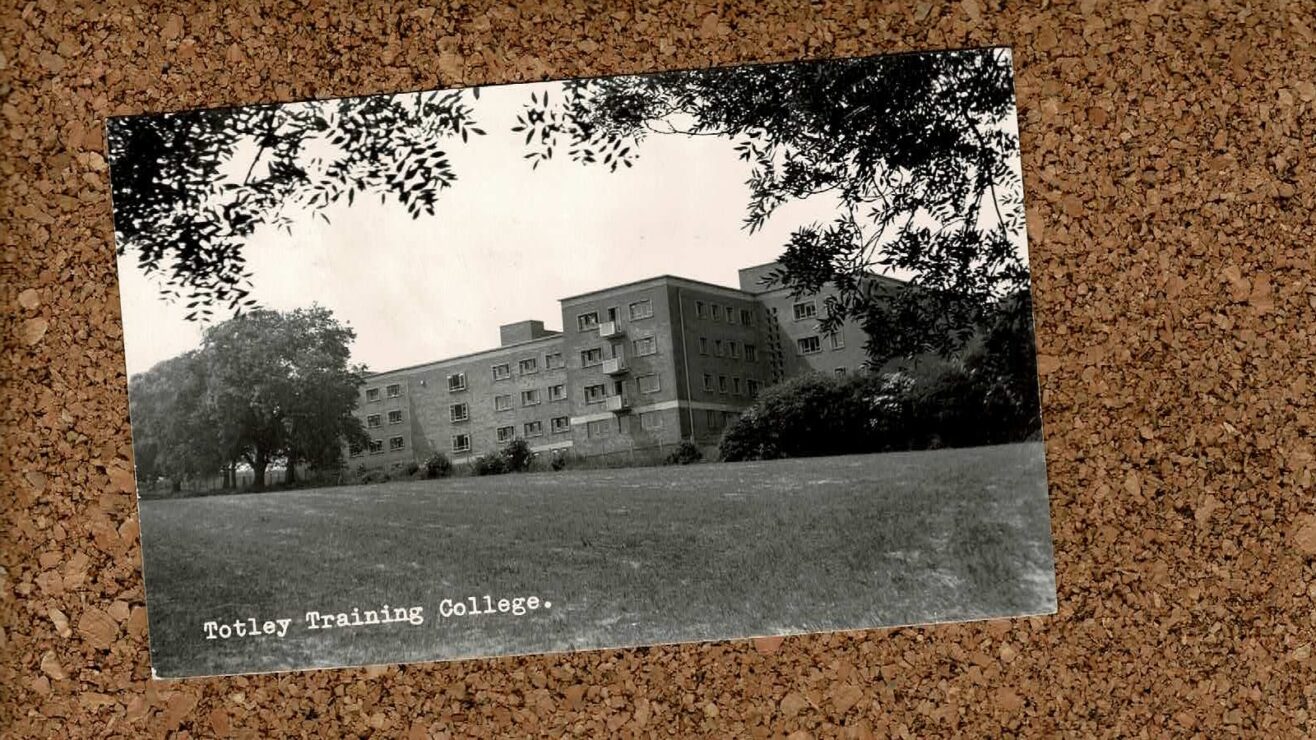When the Office for Students (OfS) reissued and revised its guidance for providers about quality and standards during the pandemic the other week, some of us spent the afternoon trying to work out what had changed since its original publication on 3 April 2020.
Very little, it turns out – although one line raised eyebrows both in the Dickinson family attic and across the loft conversations of academic registrars. In a section on “no detriment” or “safety net” policies, OfS advised that providers should:
Ensure that unnecessary burden is not placed on students, for example by requiring significant numbers of individual students to rely on mitigating circumstances policies where they have all been affected by similar issues, or by allowing submission deadlines to bunch together for individual students.
I don’t tend to punch the air at the things OfS says very often (although the walls have a few dents in them), but this did cheer me up. Mitigating circumstances policies are obviously things that are designed to make individual assessments about the individual impacts of individual sets of circumstances facing individual students. Shovelling thousands of students through them, even if they are relaxed a bit, makes no sense if all of the circumstances were essentially shared and the resultant mitigations are going to require structural effort.
If your student representation is working well, it should never need to get to mass use of ECs. And as I keep saying to people – if half of your final year undergraduates are going to be “resitting” in August, you may as well just move some dates and have them all “sitting” in June instead.
In many ways, mit circs policies are sets of rules that students use to raise an issue and get it resolved. So once you accept that there ought to be what are really collective mit circs cases, you probably need to apply that logic to complaints too – especially during a big shared situation like a global pandemic. Enter the Office of the Independent Adjudicator for Higher Education (OIAHE).
Gatherings restrictions
Back in November, just as it was putting the finishing touches to its excellent new section of its Good Practice Framework on mit circs, OIA launched a consultation on “Large Group Complaints” – ones that involve (roughly, and variable by context, but) 100 students or more.
Officially, this initiative is only tangentially related to the ‘rona. OIA’s line is that recent years have generated any number of events affecting the sector that have had the potential to lead to large numbers of complaints (widespread industrial action springs to mind), and so it is sensibly prepping up – especially because of the pandemic. It’s also implementing learning from the closure of GSM London, when it had to effectively make up some protocols for large group complaints on the fly. We had a look at that on the site when it published a report on the issues before Christmas.
Whenever OIA is handling controversial changes either to its Good Practice Framework or scheme rules, it tends to be careful about its consultations – not unnecessarily slow and bureaucratic, but just helpfully clear about the way it evaluates the feedback it gets.
So what we have here is both a second stab at its proposal on group complaints – but also a summary of the responses it got before Christmas, and what it thinks about those responses. And they’re quite revealing in many ways.
What’s the point
The first thing that OIA is keen to address is motivation. You can, it seems, say that your proposals are all about fairness and efficiency and minimising the work involved for students and providers, but you’ll still be accused of trying to “drum up” complaints – so much so that OIA feels forced to say here that:
We will not be “advertising” for complaints or undertaking any kind of campaigning activity to generate complaints.”
The line here is that when you get an event that leads to large numbers of students being dissatisfied and a provider can’t reach a resolution that the students find acceptable, it gets complaints from those students anyway – so it may as well have efficient processes that recognise that.
I’d go a bit further, I think – why on earth wouldn’t you be trying to “drum up” complaints right now? The latest iteration of that ONS survey tells us that almost 4 in 10 students in England are expressing active dissatisfaction with their academic experience right now. If all of that is manifesting in circa 740,000 complaints being handled in England right now, then fair enough.
But if not – and traditional student representation isn’t delivering the goods and shifting that needle – surely the right thing would be national campaigning work that seeks to turn the complaints into something productive. When the wind blows, some build walls, some build windmills, and some hide under some coats until it all goes away.
Used and abused
A whole bunch of the feedback concerned when this “Large Group Complaints” process might be used. For clarity, OIA says that we’re talking about situations where there’s a high degree of commonality – the issue affecting the students would be the same or very similar, and where students have been impacted in similar ways, so that a common approach to putting things right would make sense.
Someone appeared to be worried that OIA might join up complaints about similar issues from students at different providers – maybe to raise things like the way in which the Government has handled the pandemic in higher education. In a way, it was nice of Michelle Donelan to submit into the consultation – but in any event OIA rules this out.
I’d go further here, too – I know this is how it’s been set up and all, and you couldn’t really have OIA imposing solutions on Government or national agencies, but so much what everyone from DfE to SLC do is intertwined with the student experience, so it seems a shame that we don’t hear more often from OIA on the way in which their policies and practice can end up impacting the complaints it sees across providers.
If nothing else, some casework on the books where OIA carefully separates what providers can pin on government and vice versa will be useful for students watching the rather unseemly game of complaint blame ping pong we’ve seen since last March.
OIA also reassures students that there is an element of student choice whether to be part of a Large Group Complaint – a student who believes that their complaint is not adequately covered by what is being considered in the group complaint will be able to ask OIA to consider reviewing their complaint individually, which makes lots of sense.
Entry level
Probably the most controversial aspect of the proposals surrounds how complaints would enter the process – and specifically, many of the respondents were very concerned that OIA would end up accepting complaints without them having first been raised with the provider. The revised draft makes clear that one of its big principles – that OIA never looks at a complaint if the provider hasn’t had an opportunity to consider the issues first – will remain.
However, there’s a subtle difference here between complaints and complainants. What OIA is sayings is that where a provider has fully considered a shared issue that has been raised by a number of students and has reached a final position on it, it would be daft to make other students who faced the same or similar issues to all go through the process too – so it wants to allow them to join a complaint at that stage.
If you’re viscerally cynical and secretly believe that the reason we make individual students all go through individual processes for complaints is to tire them out and discourage anyone going far enough into the process to achieve resolution, then you’ll view this proposal as a disaster.
If on the other hand you take the view that thousands of students are nervous about complaining individually because they fear academic reprisals, and thousands more drop their concerns when the process takes months, you’ll smile at OIA’s innocent “we think that all this will reduce administration for providers and the work involved for individual students” rationale.
Amazingly, OIA says that some responses expressed concern that this approach would encourage students to “jump on the bandwagon”, and that students who had not been dissatisfied might be swept along or pressured into making a complaint that they did not in fact feel strongly about.
Others expressed concern that:
Students who had not made a complaint within the deadlines set within the internal procedures (and whose complaints would usually be ruled out of time without the provider considering the substance of the complaint) would benefit from the complaints raised by their more pro-active peers.
God forbid! It’s almost as if having access to fairness shouldn’t depend on how sharp-elbowed and proactive you are. During a pandemic.
Thankfully, OIA appears to be having none of this. “We think it is beneficial to identify as many students who may have been adversely affected by a particular issue as possible and to gather information about their complaints at the same time”, it says, adding that “if there is some merit in the substantive complaint, it is likely that understanding the views of all affected students at once will help us in identifying the most appropriate way forward.”
It doesn’t quite say “oh come on, are you just trying to put people off”, and nor does it swap “put” for “fob” in that sentence, but it may as well. It even has the organisational patience to be calm about someone submitting to say that:
There was a strong feeling that this [proposal] undermined a basic principle that there is an onus on a person to raise a complaint if they are dissatisfied.
If five people are defrauded of their life savings, and only one of them goes to the Police, are we really saying that any remedy on offer should only flow to the one that complained? Really?
And anyway, here OIA is only saying that two of the four that didn’t complain should be able to join later if they want to. The ideal from a student POV would be resolutions and indications that apply to all students affected by an issue, regardless of whether they complained. You’ve got to have a dream.
Steadying the see saw
As well as some bits on time limits, decisions about whether to use the special process and the appointment of a representative for a group in this scenario, there’s various other sections of sensibleness on all this – like clarifying how the process might work for trying to agree a settled outcome. There’s still time to feed back on what is now a second mini-consultation on changes to the scheme rules, until 12 March 2021.
There’s more to be done on complaints one day – making clear to students what their rights are, properly assessing (and then boosting) the level of confidence that they have to make complaints, researching the “deal or no deal” game that’s played with complainants, and gathering some numbers on complaints received and resolved below the iceberg tip that OIA sees.
We’ll need, eventually, to get to where lots of sectors have got to – viewing complaints as valuable feedback rather than threats or inconveniences.
We will also, at some stage, need to revisit whether OIA’s legal prohibition on complaints that involve academic judgement makes sense as currently framed – particularly if it results in the Class of Covid feeling they were gaslit by ministers all year on what they were allowed to complain about.
And as I said on the site a while back, it makes no sense at all to me that we don’t badge up organisations like SUs to officially help students frame and make constructive complaints in education when we do it over in health all the time.
Maniac brainiac winning the game
Overall though, I can’t help but be struck at two things.
The first is the lack of trust that we can sometimes have in students when we think about things like mit circs or complaints procedures. Outside of pandemic times, for example, why do we *ever* ask for upfront proof of circumstances for mitigating/extenuating circumstances or similar? Couldn’t we just say “we’ll check one in 10 for fraud” or something? Why do we bake mistrust into our bureaucracy? Hopefully the lack of skies-falling-in stories will encourage us in this direction in the future.
But the other thing that strikes me is about power – and the way in which, under the context of a potential deluge of casework coming its way, OIA is preparing here to tip the scales carefully and subtly away from Goliath a smidge, and towards David just a little bit.
In a year like this, when we all feel more powerless than ever, anything that makes students feel a bit more powerful when tackling what they see as an injustice can surely only be a good thing.
And even more importantly, when so many students feel poorly treated, and so many universities feel they can’t admit to any failings ever, it would be nice to think that there’s a body capable of and prepared to work out a resolution to the country’s biggest ever HE dispute – even if it will have to do so provider by provider.














‘When the wind blows, some build walls, some build windmills, and some hide under some coats until it all goes away’ doesn’t make sense. You can’t build a wall, still less a windmill in windy conditions! You have to have observed that conditions have become much windier on average, then, during a calm period, you can plan to make use of the wind next time. I am not saying that we can’t learn something about complaints and mitigating circumstances from the pandemic, but I’d like to wait until the tempest abates before I reflect on lessons learnt.
I know our response raised concerns about fairness, but not quite in the way put forward here. Ours asked for more guidance from the OIA on group complaints generally, particularly where you can end up in the situation where the group splits and a number accept an offer in full and final settlement and some carry on to ask for more. The provider might either ‘tough it out’ or offer more, but it leaves those students who have accepted their offer already a bit hard done by unless the provider decides to up the offer to all the students, but… Read more »
The OIA have created their own problem by devising a convoluted strike compensation methodology. These cases are still in the system and for every one of my strike cases I can force an OIA caseworker to write a lengthy decision letter analysing the impact of strike action on an individual student in exacting detail.